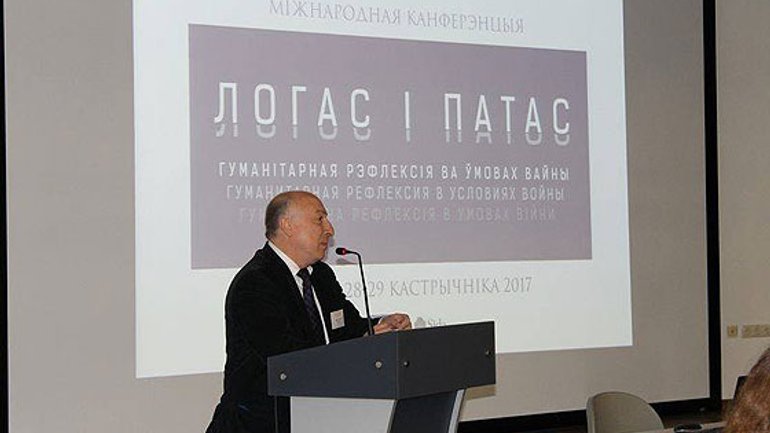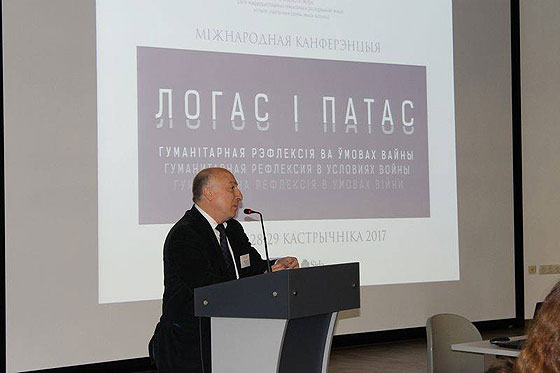Conference about the unannounced war in Ukraine held in Minsk

Among the organizers and disputants were researchers from Belarus, Lithuania, Russia and Ukraine. This is reported by the correspondent of RISU Nina Polischuk.
In the opinion of the conference initiators, the “unannounced war” in Ukraine, which evolved both in real and in the virtual (media) dimensions, led to the rapid spread of the war rhetoric throughout the Eastern European region. In the assessment and analysis of what is happening, one can observe a symptomatic tendency: everywhere (not only in the speeches of politicians and public figures, but also in the publications of humanities scholars) the discussion of different scenarios of a new possible war and / or occupation is becoming top priority.
The reports at the conference were divided into thematic sections: regimes for the representation of war: from evidence to artistic image, objectivity and propaganda in actual intellectual strategies, the war as totality, hostility and the image of “alien” in language and social practices, identity and ideology in the conditions of war, the practice of comedy. Not only political scientists, historians and sociologists, but also scientists in the fields of philosophy, cultural studies, psychology, philology, etc.
The presented scientific discourse of Ukrainian researchers was focused mainly on the modern interpretation of the concepts and phenomena of the “hybrid war”, considered the current Russian-Ukrainian relations as “inter-generational potential of public history” (report by Yaroslav Savosh (Lutsk) “Interpopulation potential of public history in the continuum of the hybrid war”) , without extrapolations of mechanisms of certain historical events in Ukraine and their rethinking against the background of modernity (report by Oksana Kalyshchuk (Lutsk) “Volyn tragedy in the context of the current hybrid Ukrainian-Russian War”).
The feature of this conference was the sectoral multidirectional scientific interpretation of events in Donbas, and so the military influence was presented in literature (report by Victoria Nazaruk (Ostroh) “Reflection of military issues in contemporary fiction”) and in the fields of sociology or historical comparativism (report by Yuri Kaganov (Zaporizhzhya ) “Regional Identities of the South and East of Ukraine in the context of the contemporary Russian-Ukrainian War”), and from the point of view of humanitarian disciplines in general (report by Dmytro Kobrynsky (Berehovo) “War and Transcarpathia – Humanitarian scholar’s view”) or philosophical analysis in particular (Valery Korablev (Kyiv) – “End of the ‘End of History’: an Affective Turn and the Realities of the Hybrid World).

Oleg Turii, director of the Institute of Church History and Vice-Rector for External Relations of the Ukrainian Catholic University (Lviv), spoke at the opening of the conference on behalf of one of the co-organizers - the International Association of Humanists (IAH). Paraphrasing the well-known aphorism “where the cannons speak, muses are silent,” he stressed that under the circumstances when in the east of Ukraine practically every day people are fired and killed, the mind and conscience cannot remain silent. Therefore, it is so important to meet and discuss, to look into the eyes and to name things with their names, with or without pathos, but necessarily with the desire to seek the truth and with the hope of understanding.
At a separate meeting was presented the announcement and concept of the next congress of the IAH, which will be held in late 2018 on the basis of the Ukrainian Catholic University in Lviv. The theme of this scientific forum “Image of ourselves” will be a logical continuation of the issues of both this conference in Minsk and the previous congress in June 2016, in which 300 speakers from different countries of Europe and North America considered various aspects of the theory and practice of othering.









